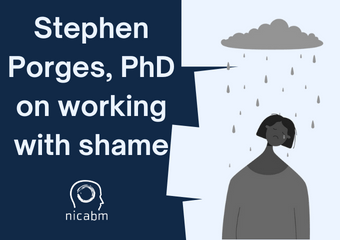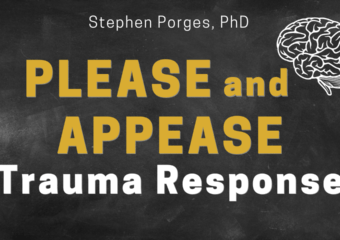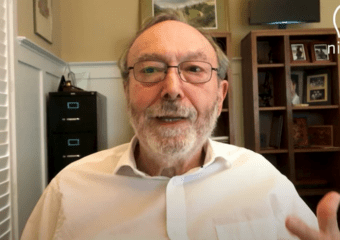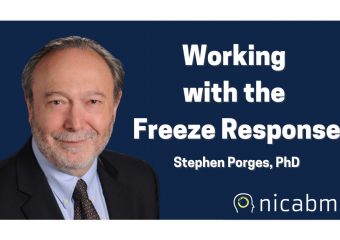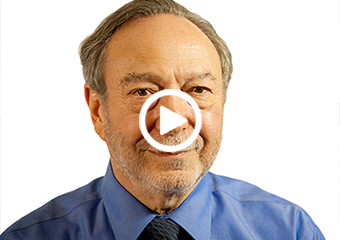According to Stephen Porges, PhD, some of our traditional psychotherapeutic approaches to working with shame may inadvertently amplify it. So in the video below, Stephen outlines a Polyvagal approach that can help us avoid reinforcing shame, and instead, resource clients to regulate themselves as they process that shame. Have a look. Click here for […]
What’s Happening in the Nervous System of Patients Who “Please and Appease” (or Fawn) in Response to Trauma? With Stephen Porges, PhD
You’ve probably heard of fight, flight, and even the freeze response to trauma. But there are some newer defense responses – ones that experts have only recently begun to name and understand – that are critical to our clinical work. One of those defense responses is “please and appease.” You may have also heard expert […]
Understanding Trauma Triggers, with Stephen Porges, PhD
In the aftermath of trauma, some clients struggle to feel a sense of connection to their bodies. And when clients can’t properly interpret the sensations or messages that the body is sending to the brain, it can be very difficult for them to get a handle on their triggers. So in the video below, Stephen […]
Working with the Freeze Response in the Treatment of Trauma with Stephen Porges, PhD
When a client freezes during a session, how do you help them come out of their trauma response (without further triggering them)? This can be challenging because proximity, movement, and eye contact can all feel threatening to a client who is frozen and hyper-aware of danger. So in the video below, Stephen Porges, PhD, shares […]
Polyvagal Theory in Action – How Heart Rate Figures Into Trauma Treatments
How can the body become a resource for a patient who’s experienced trauma? Polyvagal Theory helps us answer this question by explaining how people process their environment and how the body regulates itself in the face of stress and trauma. Watch the video below as Stephen Porges, PhD shares one way to apply Polyvagal Theory […]
